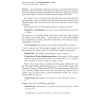Free Online Productivity Tools
i2Speak
i2Symbol
i2OCR
iTex2Img
iWeb2Print
iWeb2Shot
i2Type
iPdf2Split
iPdf2Merge
i2Bopomofo
i2Arabic
i2Style
i2Image
i2PDF
iLatex2Rtf
Sci2ools
71
Voted
SYNTHESE
2008
2008
Could there be exactly two things?
Many philosophers think that, necessarily, any material objects have a fusion (let's call that doctrine "Universalism"). In this paper I point out a couple of strange consequences of Universalism and related doctrines, and suggest that they are strange enough to constitute a powerful argument against those views. By "thing" I mean material thing. We all believe that there actually are many more than two things, but could there have been exactly two? More generally, what are the ns such that there could have been exactly n things? Pre-theoretically, the following conjecture is quite attractive: Primitive Cardinality: For any n, there could have been exactly n things. For instance, we naturally judge that there could have been exactly two things, and exactly three, . . . Attractive as it is, many philosophers are committed to denying Primitive Cardinality. For instance, many philosophers believe in Universalism: Necessarily, any material objects have a fusion.1 I...
Related Content
| Added | 15 Dec 2010 |
| Updated | 15 Dec 2010 |
| Type | Journal |
| Year | 2008 |
| Where | SYNTHESE |
| Authors | Juan Comesaña |
Comments (0)

